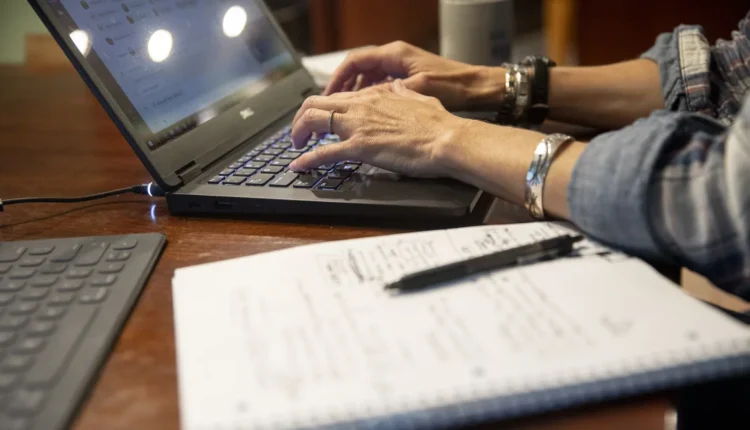Every week, Cynthia George connects with her granddaughter and great-grandson on video calls. The 71-year-old retiree reads the news on her MSN homepage and googles how to fight the bugs coming from her drain in Florida’s summer heat. She hunts for grocery deals on her Publix app so that her food stamps stretch just a little further.
But the great-grandmother worries her critical lifeline to the outside world could soon be severed. In fact, she fears she might soon have to make a difficult choice: Buy enough food to feed herself — or pay her home internet bill.
George is one of millions of Americans facing a little-known but fast-approaching financial cliff, a catastrophe that policy experts say is preventable but only if Congress acts, and quickly.
By as soon as May, more than 23 million US households risk being kicked off their internet plans or facing skyrocketing bills that force them to pay hundreds more per year to get online, according to the Federal Communications Commission (FCC).
The looming disaster could affect nearly 1 in 5 households nationwide, or nearly 60 million Americans, going by Census Bureau population estimates.
Such broad disruptions to internet access would affect people’s ability to do schoolwork, to seek and do jobs, to visit their doctors virtually or refill prescriptions online, or to connect to public services, widening the digital divide between have and have-nots and potentially leading to economic instability on a massive scale.
‘I have to account for every penny’
The crisis is linked to a critical government program expected to run out of funding at the end of April. Known as the Affordable Connectivity Program (ACP), the benefit provides discounts on internet service valued at up to $30 per month to qualifying low-income households, or up to $75 per month for eligible recipients on tribal lands.
Lawmakers have known for months about the approaching deadline. Yet Congress is nowhere close to approving the $6 billion that President Joe Biden says would renew the ACP and avert calamity for tens of millions of Americans.
This past week, congressional leaders missed what advocates say was the last, best legislative opportunity for funding the ACP: The 11th-hour budget deal designed to avert a government shutdown. The bill text released this week includes no money for the program, heightening the odds of an emergency that will plunge millions into financial distress just months before the pivotal 2024 election.
Now, with time running out for the ACP, the FCC has been forced to begin shutting down the program — halting new signups and warning users their benefits are about to be suspended.
“Because of political gameplay, about 60 million Americans will have to make hard choices between paying for the internet or paying for food, rent, and other utilities, widening the digital divide in this country,” said Gigi Sohn, a former top FCC official. “It’s embarrassing that a popular, bipartisan program with support from nearly half of Congress will end because of politics, not policy.”
Without the aid, low-income Americans like George would be priced out of home internet service. The prospect of losing a critical lifeline to the modern economy has put ACP subscribers on edge. Many tell CNN they are irate at Congress for letting them down and, through inaction, taking away a basic, essential utility.
“My grandkids, they make fun of me,” George said with a chuckle. “They say I’m cheap. I go, ‘No, Grandma’s thrifty.’ I don’t have any choice; I have to account for every penny. And this would mean that that food bill would have to be cut down. There’s no place else I would be able to take it from.”
Source: CNN


Comments are closed.